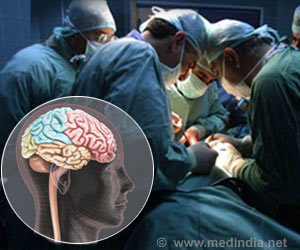
A groundbreaking study has revealed hundreds of genetic variations that influence the development of critical brain structures. Researchers examined DNA data from over 30,000 individuals to pinpoint 254 genetic variants linked to the “deep brain,” regions responsible for memory, movement, addiction, and other vital functions. These findings, published in Nature Genetics, offer new insights into the genetic underpinnings of brain-related disorders. (1✔ ✔Trusted Source
Genomic analysis of intracranial and subcortical brain volumes in up to 74,898 individuals yields polygenic scores accounting for brain variation across ancestries
)
The study is powered by the Enhancing Neuro Imaging Genetics through Meta-Analysis (ENIGMA) consortium, an international effort based at the Keck School of Medicine of USC, which unites more than 1,000 research labs across 45 countries to hunt for genetic variations that affect the brain’s structure and function.
“A lot of brain diseases are known to be partially genetic, but from a scientific point of view, we want to find the specific changes in the genetic code that cause these,” said Paul M. Thompson, PhD, associate director of the USC Mark and Mary Stevens Neuroimaging and Informatics Institute and principal investigator for ENIGMA.
“By conducting this research all over the world, we’re beginning to home in on what has been called ‘the genetic essence of humanity,’” he said.
Unlocking Clues to Understanding and Treating Brain Disorders
Identifying brain regions that are larger or smaller in some groups (for example, people with a specific brain disease) compared to others can help scientists start to understand what causes dysfunction in the brain. Finding the genes that control the development of those brain regions offers a further clue about how to intervene.
In the present study, funded in part by the National Institutes of Health, a team of 189 researchers from around the world collected DNA samples and magnetic resonance imaging brain scans, which measured volume in key subcortical regions — also known as the “deep brain” — from 74,898 participants. They then performed genome-wide association studies, or GWAS, an approach that can identify genetic variations linked to various traits or diseases, finding some gene-brain volume associations that carried a higher risk for Parkinson’s disease and attention-deficit/hyperactivity disorder (ADHD).
“There is strong evidence that ADHD and Parkinson’s have a biological basis, and this research is a necessary step to understanding and eventually treating these conditions more effectively,” said Miguel Rentería, PhD, an associate professor of computational neurogenomics at the Queensland Institute of Medical Research (QIMR Berghofer) in Australia and principal investigator of the Nature Genetics study.
Advertisement
The researchers analyzed brain volume in key subcortical structures, including the brainstem, hippocampus, amygdala, thalamus, nucleus accumbens, putamen, caudate nucleus, globus pallidus and ventral diencephalon. These regions are critical for forming memories, regulating emotions, controlling movement, processing sensory data from the outside world, and responding to reward and punishment.
GWAS revealed 254 genetic variants associated with brain volume across those regions, explaining up to 10% of the observed differences in brain volume across participants in the study. While previous research has clearly linked certain regions with disease, such as the basal ganglia with Parkinson’s disease, the new study reveals which gene variants shape brain volume with greater precision.
Advertisement
“This paper, for the first time, pinpoints exactly where these genes act in the brain,” providing the beginnings of a roadmap for where to intervene said Thompson, who is also a professor of ophthalmology, pediatrics, neurology, psychiatry and the behavioral sciences, radiology, biomedical engineering and electrical engineering at the Keck School of Medicine.
The researchers note that the study is correlational, so more investigation is needed before genes can be causally linked with various diseases.
Reference:
- Genomic analysis of intracranial and subcortical brain volumes in up to 74,898 individuals yields polygenic scores accounting for brain variation across ancestries – (https://www.nature.com/articles/s41588-024-01951-z)
Source-Eurekalert



